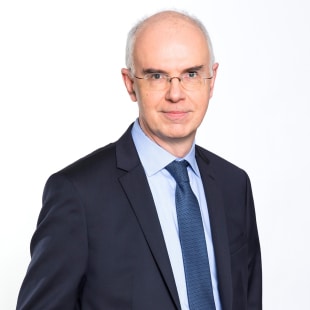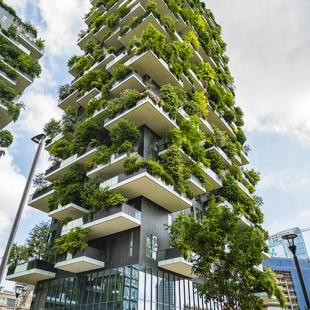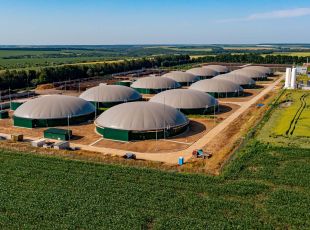What role does responsible investment play in BNP Paribas Cardif's offers?
Olivier Héreil : BNP Paribas Cardif is an insurance company: our role is, on a daily basis, to protect people and their property, and, over a long period of time, their savings and therefore their life projects as well.
Our flagship product, life insurance, is a long-term savings product that is naturally conducive to responsible investment. For several years now, we’ve been convinced that we needed to select an increasing number of positive impact investment vehicles in our offerings. They fund companies that provide concrete solutions to social and environmental challenges. Now it's no longer an option: there can be no more growth other than sustainable growth that generates positive impacts for society and the planet.
«Life insurance, is a long-term savings product that is naturally conducive to responsible investment. »
This conviction is at the heart of our strategic plan over the next four years. And that is not new. It has been almost fitteen years since we introduced the notion of ESG (environmental, societal and governance) criteria in the selection of our investments for our offerings and our General Fund. In France, for example, almost 40% of our unit-linked products have an external, independant sustainable label.
How can a client invest responsibly?
O. H. : To invest responsibly, our retail clients essentially have two possibilities: life insurance and retirement savings plan. In a life insurance contract, policy-holders have two major investment choices: decide to invest in the euro fund (or general fund) of the insurance company - composed mainly of bonds - which guarantees its invested capital and a regular return; they can also invest in “unit-linked products” which are assets in the financial markets or securities, riskier but potentially more profitable. Clients can choose to mix the two options, knowing that they will be able to change the distribution of the chosen investment vehicles over time.
In both cases, the funds we select integrate ESG criteria and are largely labelled as responsible, such as the SRI label in France, or even for some, with a positive impact. Clients who want to invest responsibly can turn to these funds. In fact, their choice is increasingly about units of account rather than the euro fund, to find a better return, and more willingly about SRI labelled unit-linked products.
« The funds we select integrate esg criteria and are largely labelled as responsible.»
They want to go beyond just financial performance; they want their savings to have meaning, to be contributing to a more ecological and inclusive future. And the crisis accelerated this movement. This strong demand has encouraged us to work with asset management companies, primarily BNP Paribas Asset Management, to further accelerate the expansion of our range of sustainable, SRI labelled funds on themes that are easy to explain to our clients.
Is the dynamic of socially responsible investments unique to France?
O. H. : Overall, we are witnessing a broadening of themes around the major global societal challenges of decarbonisation and biodiversity. However, it is true that France took a lead on this subject, probably due to the COP21 in 2015, which affirmed very strong ambitions. But the momentum is also visible in Europe, notably in Italy and Luxembourg. In Asia, these themes are starting to arrive and we are now asking the different regions to integrate ESG criteria into their general funds because this is a very significant element to differentiate themselves from the competition.
What are the main trends you see in terms of investment?
O. H. : With regard to socially responsible investments or sustainable development, beyond the environment, which was the first theme to have developed massively, we are seeing a growing interest in increasingly specific themes, especially those related to natural capital. Media coverage of the water and ocean situation, or the recognised positive impact of biodiversity on carbon absorption, has led to real collective awareness and has led us, as an insurer, to think about new products that integrate these biodiversity issues.
« We are seeing a growing interest in increasingly specific themes. »
In addition, unlisted investments are also expanding: Admittedly, this is still a complex world but projects are starting to emerge, especially on infrastructure and large developments. The energy transition requires these aspects to be taken into account. Sustainable mobility is one of them, for example, although it is not yet very well known among the public and has to be considered from a long-term perspective. Health is also a highly sensitive area whose challenges have only been confirmed by the crisis. We are working to make all major social issues accessible, by investing in projects with a social impact. For example, in France, we invest in the creation of low rent housing through the Intermediary Housing Fund. In France, a client investing in our general fund through their life insurance contract could then, for example, be helping low income families find affordable housing in the country’s major cities.
Responsible investments: companies are getting in on it too!
BNP Paribas Cardif also offers responsible investments to its corporate clients, mainly through retirement insurance contracts. The approach is identical to that of retail customers: they have the choice between the general fund or unit-linked products to build up the pension insurance of their employees. The second lever is that of employee savings offered by companies. A pioneer in responsible investing, it is the first company to incorporate responsible investments into its offering.
The figures for a responsible investment policy at BNP Paribas Cardif [end of 2022]
- By the end of 2022, 95% of Cardif Assurance Vie's assets underwent ESG analysis. ESG analysis methodologies are specific to each asset class.
- BNP Paribas Cardif has also made the commitment to increase its positive impact investments and has set itself the objective of investing an average of €1Bn per year between 2019 and 2025 in positive impact investments.
- In 2022, its new positive impact investments totalled 2.7 billion euros.
- By the end of 2022 in France, nearly 40% of the 46 billion euros in units of account were invested in labelled products.




